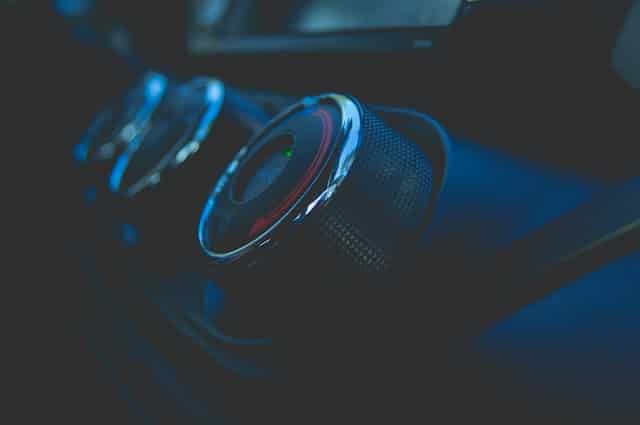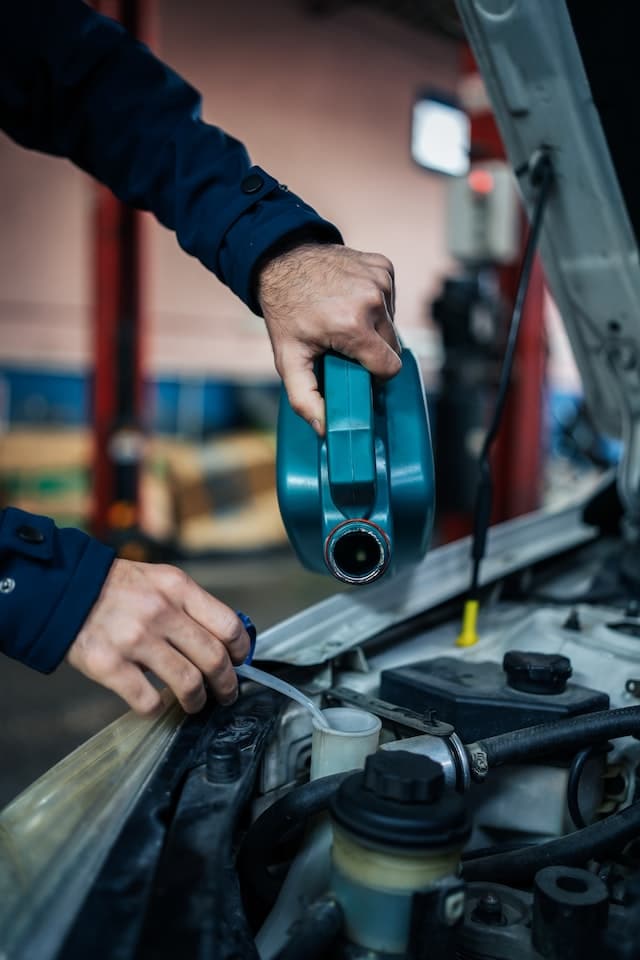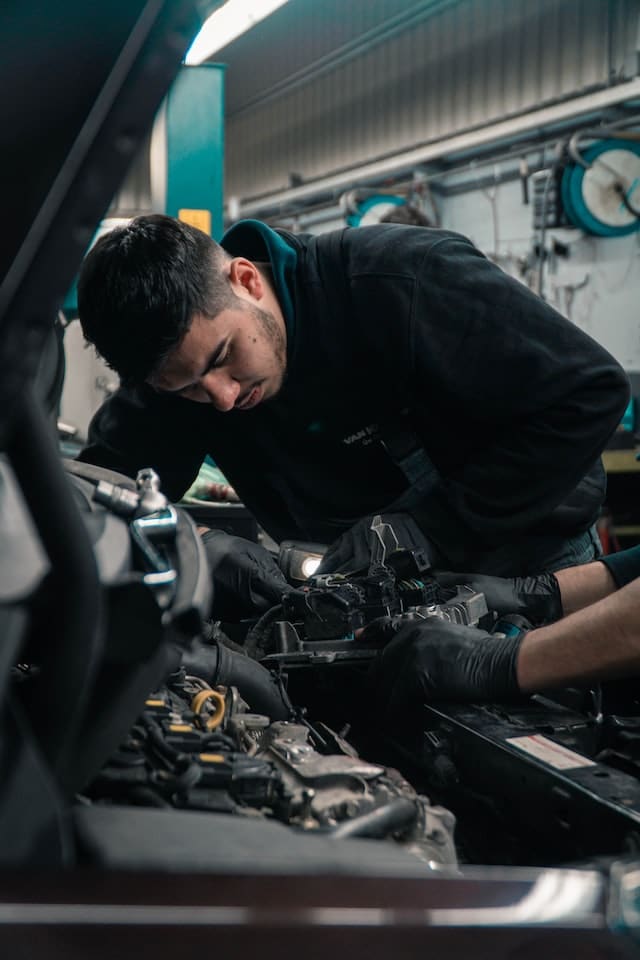
Why is my car overheating? Addressing overheating issues in your car is crucial to ensure the safety and longevity of your vehicle. Ignoring these problems can lead to costly repairs, compromised performance, and potential roadside emergencies. By identifying and rectifying the root causes of overheating, you can help maintain your car’s optimal performance and avoid further damage.
There are several factors that can contribute to car overheating, such as cooling system issues, engine oil problems, mechanical issues, and electrical problems. In the subsequent sections, we will examine each of these causes in detail and provide guidance on how to identify and resolve them.
Signs of Car Overheating

Here are some signs that your engine may be overheating:
High engine temperature gauge reading
The most obvious sign of an overheating engine is a high reading on the engine temperature gauge, usually indicated by the needle moving towards the red zone or a warning light.
Steam or smoke coming from the engine bay
Steam or smoke emitting from the hood is a clear indication that the engine is too hot and requires immediate attention.
Burning smell
A burning or hot smell coming from the engine bay can indicate that your engine is overheating, as various components and fluids may be reaching abnormally high temperatures.
Reduced engine performance
Overheating can cause the engine to lose power, stutter, or stall, as it struggles to operate efficiently under extreme temperatures.
Coolant leaking
If you notice coolant leaking onto the ground or smell the sweet, syrupy scent of coolant, it could indicate an issue with the cooling system, which may lead to overheating.
Unusual noises
When an engine is overheating, you may hear unusual noises, such as boiling, hissing, or knocking sounds, as the engine components and fluids are subjected to excessive heat.
Warning lights on the dashboard
Warning lights, such as the check engine light or a specific engine temperature warning light, may illuminate to alert you to an overheating issue.
If you observe any of these signs, it’s crucial to pull over and turn off your engine as soon as it’s safe to do so. Allow the engine to cool down and investigate the cause of the overheating before continuing your journey. If you’re unsure about how to proceed, it’s always best to consult a professional mechanic for assistance.
Causes of Car Overheating

Cooling system issues
Low coolant levels
Insufficient coolant in the system can cause the engine to overheat, as it relies on coolant to transfer heat away from the engine components.
Leaking coolant
Leaks in the cooling system, such as from hoses, the radiator, or the water pump, can cause a loss of coolant and lead to overheating.
Faulty water pump
The water pump circulates coolant through the engine and radiator. A malfunctioning water pump can result in poor coolant circulation and overheating.
Blocked or damaged radiator
A clogged or damaged radiator can impede the flow of coolant and hinder heat dissipation, causing the engine to overheat.
Malfunctioning thermostat
A faulty thermostat may not regulate the flow of coolant properly, leading to an overheated engine.
Engine oil problems

Low engine oil levels
Insufficient engine oil can result in increased friction and heat generation within the engine, leading to overheating.
Old or degraded engine oil
Over time, engine oil can break down and lose its ability to lubricate and cool engine components effectively, causing overheating.
Incorrect type of engine oil
Using the wrong type of engine oil for your vehicle may lead to inadequate lubrication and cooling, contributing to overheating.
Mechanical issues
Damaged or worn belts and hoses
Damaged or worn serpentine belts and hoses can hinder the operation of the water pump and other cooling system components, leading to overheating.
Blown head gasket
A damaged head gasket can cause coolant to leak into the combustion chamber or oil passages, resulting in overheating and other engine problems.
Blocked exhaust system
A clogged exhaust system can cause excessive heat buildup in the engine, leading to overheating.
Electrical problems
Failing cooling fan
A malfunctioning cooling fan may not adequately cool the radiator and engine, causing the engine temperature to rise and potentially overheat.
Malfunctioning sensors or switches
Faulty temperature sensors or switches can provide incorrect readings or fail to activate cooling system components, leading to overheating.
Identifying the Cause of Car Overheating

Visual inspection
Coolant levels and condition
Check the coolant reservoir for adequate coolant levels and examine the coolant’s color and consistency. Low levels or discolored, contaminated coolant can indicate a problem.
Engine oil levels and condition
Inspect the engine oil dipstick to ensure the oil level is within the recommended range and assess the oil’s appearance for signs of contamination or degradation.
Belts, hoses, and radiator condition
Visually examine the serpentine belts, hoses, and radiator for any signs of damage, wear, or leaks that could contribute to overheating.
Monitoring dashboard warning lights
Pay attention to any dashboard warning lights or messages, such as the temperature gauge or check engine light, that may indicate an issue with the cooling system or engine.
Observing engine temperature and performance
Monitor the engine temperature gauge while driving and be aware of any unusual engine performance, such as reduced power, stuttering, or steam coming from the engine bay, which could indicate overheating.
Consulting a professional mechanic
If you are unable to identify the cause of the overheating or if you are unsure about how to proceed, consult a professional mechanic for a thorough inspection and diagnosis. They can use specialized tools and equipment to accurately pinpoint the issue and recommend appropriate repairs or replacements.
Why Is My Car Overheating? Addressing the Issues
Immediate actions to take
Pulling over and turning off the engine
If you notice your car is overheating, find a safe place to pull over, turn off the engine, and allow it to cool down. Assess the situation. Continuing to drive an overheating vehicle can cause severe engine damage.
Allowing the engine to cool
Do not open the radiator cap or attempt any repairs while the engine is still hot. Wait for the engine to cool down to avoid burns or further damage.
When addressing an overheating issue, it’s crucial to exercise caution before opening the hood of your car. Wait until the vehicle has cooled down before attempting to access the engine bay. The cooling process may take some time, as the engine and other components can retain heat for an extended period after being turned off.
Opening the hood too soon can expose you to hot surfaces, steam, or pressurized coolant, all of which can cause severe burns or other injuries. Always prioritize your safety and allow ample time for the vehicle to cool down before inspecting or working on the engine.
Checking coolant and oil levels
Once the engine has cooled, carefully check the coolant and oil levels to determine if they are contributing to the overheating issue.
Turning on your car’s heat can help alleviate an overheating engine in some situations
When you turn on the heat, it draws warmth away from the engine coolant, effectively dissipating excess heat and reducing the engine temperature.
If you notice your car is overheating, turning on the heater to its highest setting (with the fan turned up) can act as a temporary measure to cool down the engine. However, this is not a permanent solution, and you should still pull over and turn off the engine when it’s safe to do so. After allowing the engine to cool down, be sure to address the underlying issue causing the overheating to prevent further damage or breakdowns.
Seeking professional help if necessary
If you are unable to identify the cause of the overheating or feel uncomfortable addressing the issue yourself, contact a professional mechanic or roadside assistance for help.
Long-term solutions

Regular maintenance and inspections
Schedule routine maintenance and inspections for your vehicle to ensure that all cooling system components are in good working condition and to detect potential issues before they become more serious.
Replacing or repairing faulty components
Replace or repair any damaged or malfunctioning components in the cooling system, engine, or related systems to prevent further overheating issues.
Monitoring coolant and oil levels regularly
Routinely check and maintain the proper coolant and oil levels in your vehicle to ensure optimal engine cooling and lubrication.
Ensuring proper operation of the cooling system
Regularly inspect the cooling system components, such as the radiator, water pump, thermostat, and cooling fan, to ensure they are functioning correctly and providing adequate cooling for your engine.
